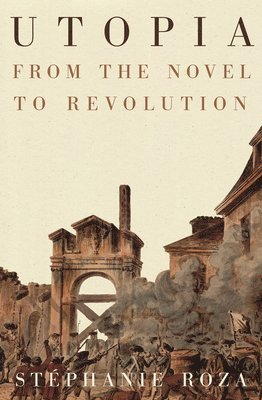Kommande

729:-
Until the Age of Enlightenment, utopia was a popular literary genre, but without concrete political effects. However, in the decades leading up to 1789, its status gradually changed from an entertaining thought experiment to a socialist project. Imagining the ideal city took on the task of articulating revolutionary transformation of society towards equality and social justice. In Utopia, Stéphanie Roza explores the nascent ideal of a community of property and labour, not yet called communism, and the thinkers who engaged with it in the lead-up to the French Revolution. These philosophers included Étienne-Gabriel Morelly, a fierce critic of private property and the mysterious author of the Code de la Nature; the Abbé de Mably, a radical republican and interlocutor of Rousseau; and Gracchus Babeuf, who, from the 1780s onwards, defended the natural right to subsistence and dreamed of a more fraternal world. Together, they laid the foundations for modern socialist movements. In the crucible of the French Revolution, 'real equality' became the goal of a handful of conspirators gathered around Babeuf, who had meanwhile become the 'tribune of the people'. The Conspiracy of Equals was considered by Marx to be 'the first active communist party': the hopes and questions that ran through the group prefigured those of the militants of later periods, including today.
- Format: Pocket/Paperback
- ISBN: 9781839767654
- Språk: Engelska
- Antal sidor: 384
- Utgivningsdatum: 2025-07-01
- Förlag: Verso Books

